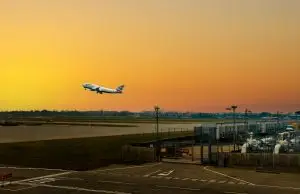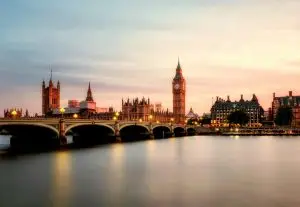The Bus Services (No. 2) Bill was introduced into the House of Lords on 17 December 2024 and started its committee stage on 28 January 2025.[1] The Bill aims to make bus services more reliable, protect lifeline bus services, improve safety and increase the responsiveness of bus services to local needs.[2]
The Bill will[3]:
- Streamline the process of franchising bus services, which is now available to all local transport authorities (LTAs) following the Franchising Schemes (Franchising Authorities) (England) Regulations 2024,
- Strengthen enhanced partnerships,
- Repeal the ban on establishing new local authority bus companies,
- Give LTAs the power to design and make grants to operators of bus services in their areas,
- Improve availability of information for passengers,
- Give powers to LTAs to introduce by-laws to tackle anti-social behaviour,
- Introduce restrictions on the use of new non-zero-emission buses on registered local bus services from January 2030.
Conservatives in the House of Lords objected to the bill, claiming that the Labour Government is over-reliant on franchising as a silver bullet to solve all the problems facing the bus sector.[4] In particular, the Earl of Effingham raised the concern that, while franchising may be beneficial in urban areas, it will do little to resolve the issues faced in rural areas.[5]
The Bill has been welcomed the Liberal Democrat Party in the House of Lords and the Confederation of Passenger Transport. The Liberal Democrat peer Baroness Pidgeon welcomed the provisions of the Bill that will give local leaders powers to adopt a system of bus services that works best for their local area.[6] This sentiment was shared by the Confederation of Passenger Transport.[7]
The Conservatives, Liberal Democrats and Confederation of Passenger Transport all raised an issue which the Bill did not address: fares and funding. In January 2025, the Government raised the national bus fare cap from £2 to £3.[8] While the Government defended the change on the basis that funding for the previous cap had been due to expire at the end of 2024, the material effect on passengers was an increase in fares.[9] The Confederation of Passenger Transport has said that the Bus Services (No. 2) Bill needs to be backed up with “hard cash” to be effective.[10]
Advocates of bus franchising will hope that the reforms in the Bill, and the new powers granted to local transport authorities, will allow bus services to become more efficient and responsive to passenger demands. However, without increased funding from government, this may not be enough to deliver the stability and reliability that both passengers and the bus sector seek.
[1] House of Lords, Bus Services (No. 2) Bill [HL], 28 January 2025, link
[2] Department for Transport, Better buses on the way as government introduces new legislation to boost local control of services, 17 December 2024, link
[3] Lord Hendy of Richmond Hill, House of Lords Hansard, 8 January 2025, Col. 753, link
[4] The Earl of Effingham, House of Lords Hansard, 8 January 2025, Col. 756, link
[5] Ibid
[6] Baroness Pidegon, House of Lords Hansard, 8 January 2025, Col. 758, link
[7] Confederation of Passenger Transport, CPT’s Response to the Better Buses Bill, 17 December 2024, link
[8] Department for Transport, Bus passengers to save hundreds as government prevents cliff-edge fare hike, 1 January 2025, link
[9] Ibid
[10] Confederation of Passenger Transport, CPT’s Response to the Better Buses Bill, 17 December 2024, link




